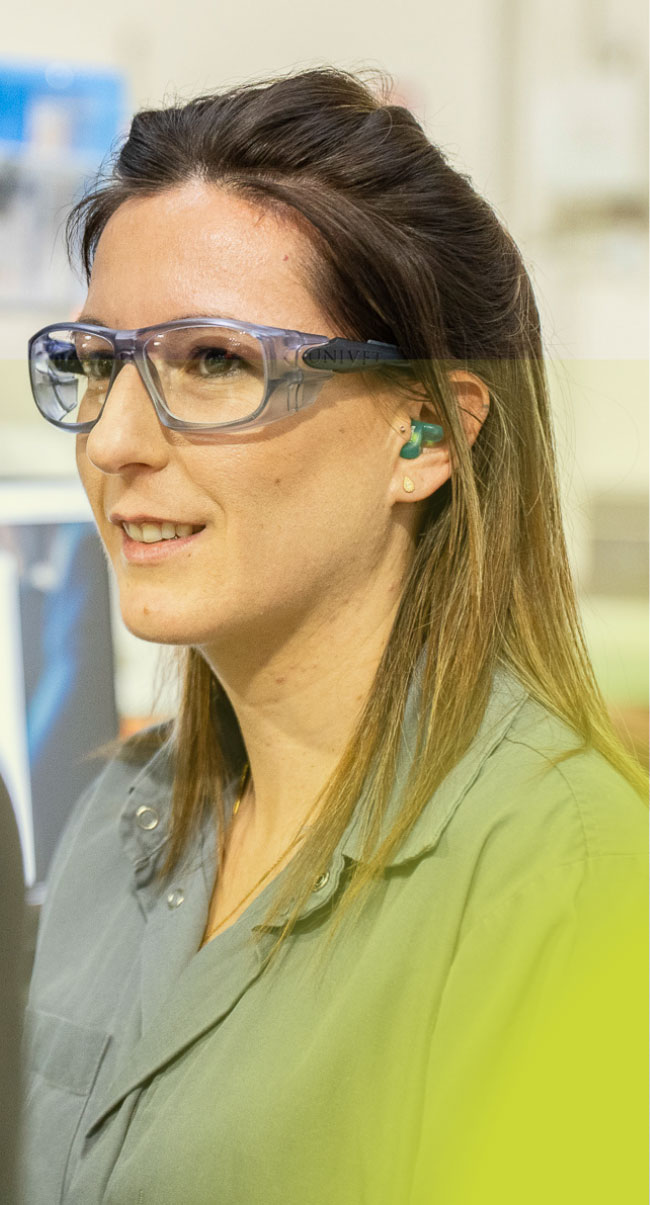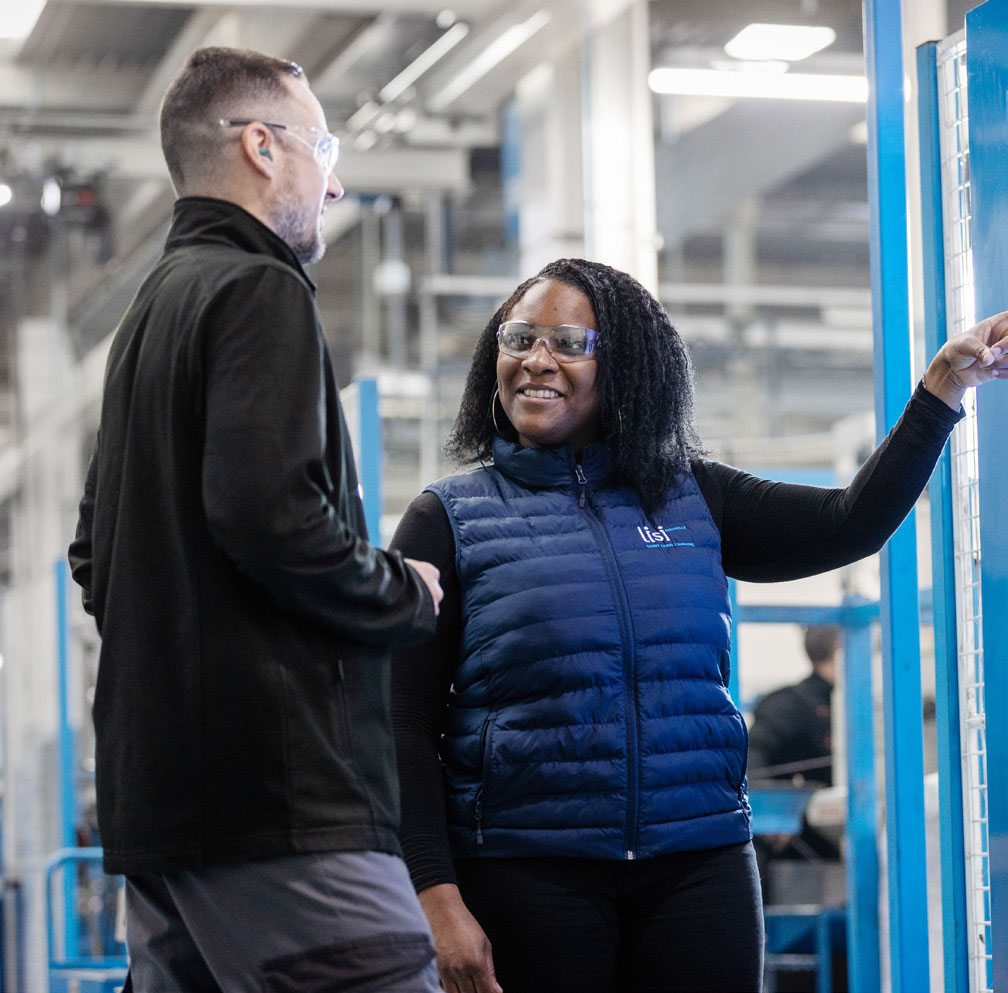Strategy
People


The “P” for People, the first P in our sustainable development strategy, focuses on two priorities: protecting our employees and retaining our talents. At LISI, we are deeply committed to workplace safety and employee well-being. We firmly believe that happy and fulfilled employees are the best source of sustainable innovation. This year marks a significant acceleration in our transformation with:
- A skills development program aimed at driving our talent toward excellence.
- An approach to anticipating the jobs of tomorrow, shaped by the challenges of artificial intelligence.
- A strong policy promoting diversity and inclusion, which are true drivers of collective performance.
- The implementation of a dashboard to track and improve our ability to attract and retain top talent.
This comprehensive approach to managing our talent represents a major strategic asset and the foundation for our future growth in a constantly evolving world.
# Challenges & Objectives |
2023 | 2024 |
|---|---|---|
AXIS 1 : PROTECT OUR EMPLOYEES |
6.7 | 5.7 |
AXIS 2 : RETAIN OUR TALENTS |
28.1 | 28.4 |
AXIS 2 : RETAIN OUR TALENTS |
8.1 | 6.8 |
* SDG: Sustainable development goals / GRI : Global Reporting Initiative.
Staying Agile with AI
A top strategic
priority
The company must integrate AI at the core of its strategic vision, viewing it as a driver of transformation rather than just a tool. LISI is co-developing, in collaboration with Mercateam, a workforce planning system to create short- and medium-term scenarios for securing critical skills within the organization.”
AI is radically transforming our professional landscape, rendering certain skills obsolete while others emerge at lightning speed. This revolution presents us with major challenges: continuous training, organizational adaptability, a learning culture, integration of emerging talents, and retaining our key workforce. “Strategic investment in organizational agility is no longer optional — it’s an absolute necessity to turn these challenges into growth opportunities”, says Anne-Delphine Beaulieu, Chief Sustainability Officer & Digital Transformation, LISI. “We are facing a crucial generational paradox: while we focus our efforts on upskilling our current employees, new hires — digital natives — clash with our traditional paradigms. When we talk spreadsheets and presentations, they respond with generative AI and intuitive programming.”

Workforce planning: anticipating the future to unlock our talent potential
Facing rapid market changes, LISI is implementing an innovative approach in partnership with the start-up Mercateam to create a tailored solution. This technology enables us to proactively manage skills with a 360-degree perspective:
- Skills Forecasting: an analysis of short-, medium-, and long-term needs based on real data (retirements, turnover, versatility).
- Decision Intelligence: a mapping of critical areas that enables leaders to anticipate and guide their investments in human resources.
- Internal Mobility: identifying pathways between roles to enhance career progression and maximize the potential of our employees.
- Customized Training: designing personalized development programs to bridge gaps in key skills.
This pilot project, launched in 2024 at one of our sites, embodies our vision of an agile company — ready to anticipate transformations while valuing and retaining our talent, our most valuable asset.
Integrating AI into the company
A key challenge for L|s|
The integration of Artificial Intelligence is reshaping all professions, from administrative to industrial roles. LISI has adopted a structured and responsible approach by establishing governance with an AI charter that both regulates and fosters innovation (see box). “This allows each of our employees to explore while managing risks and setting boundaries,” emphasizes Anne-Delphine Beaulieu, Chief Sustainability Officer & Digital Transformation, LISI. AI is not optional; it is a strategic catalyst that we are deploying methodically to enhance our operational excellence.
Predictive Maintenance and Quality Control
Other areas identified as potentially optimizable through AI are currently under consideration, such as predictive maintenance, solving similar issues, and quality control. Advanced instrumentation of production lines, equipped with IoT sensors that continuously collect data, unlocks optimization opportunities and helps reduce costs in preventive maintenance — by preventing failures in quality control and minimizing impacts. We are also working on the contextual analysis of 420,000 resolved problem tickets within the Fabriq solution (a factory management platform) to identify similarities and accelerate problem resolution.

A dedicated AI task force
To address all challenges related to Artificial Intelligence in a coordinated manner, the LISI Group has established a dedicated task force. Comprising eight members from various professions and divisions, this AI Task Force (AITF) meets monthly to tackle diverse questions: What can be achieved with AI? What are the Group’s priority use cases? What are the risks? Once these questions are resolved, the AITF ensures efficient management without wasting energy or resources. Additionally, meetings and learning expeditions have been organized to refine the knowledge and vision of the Group’s members.


